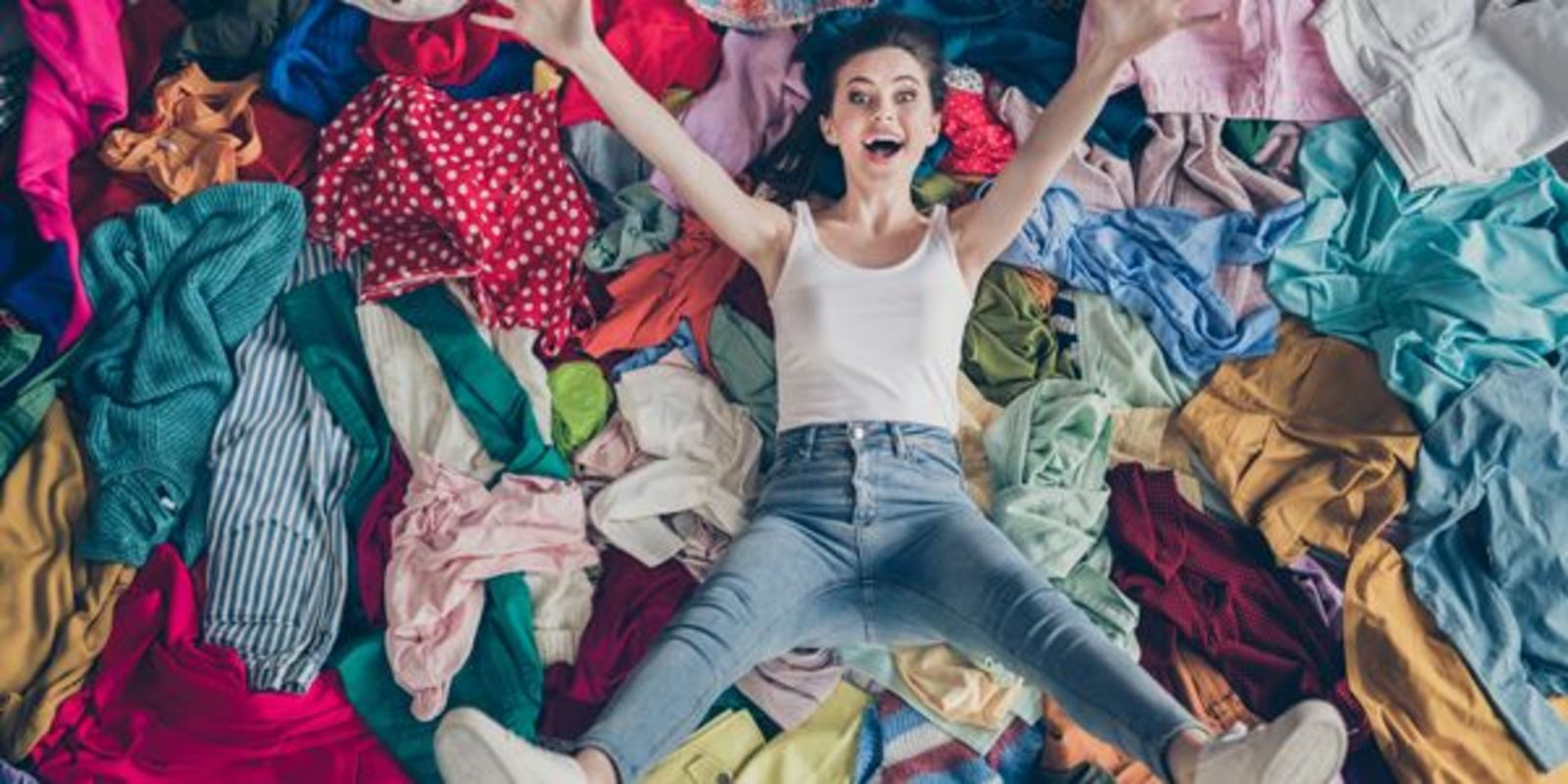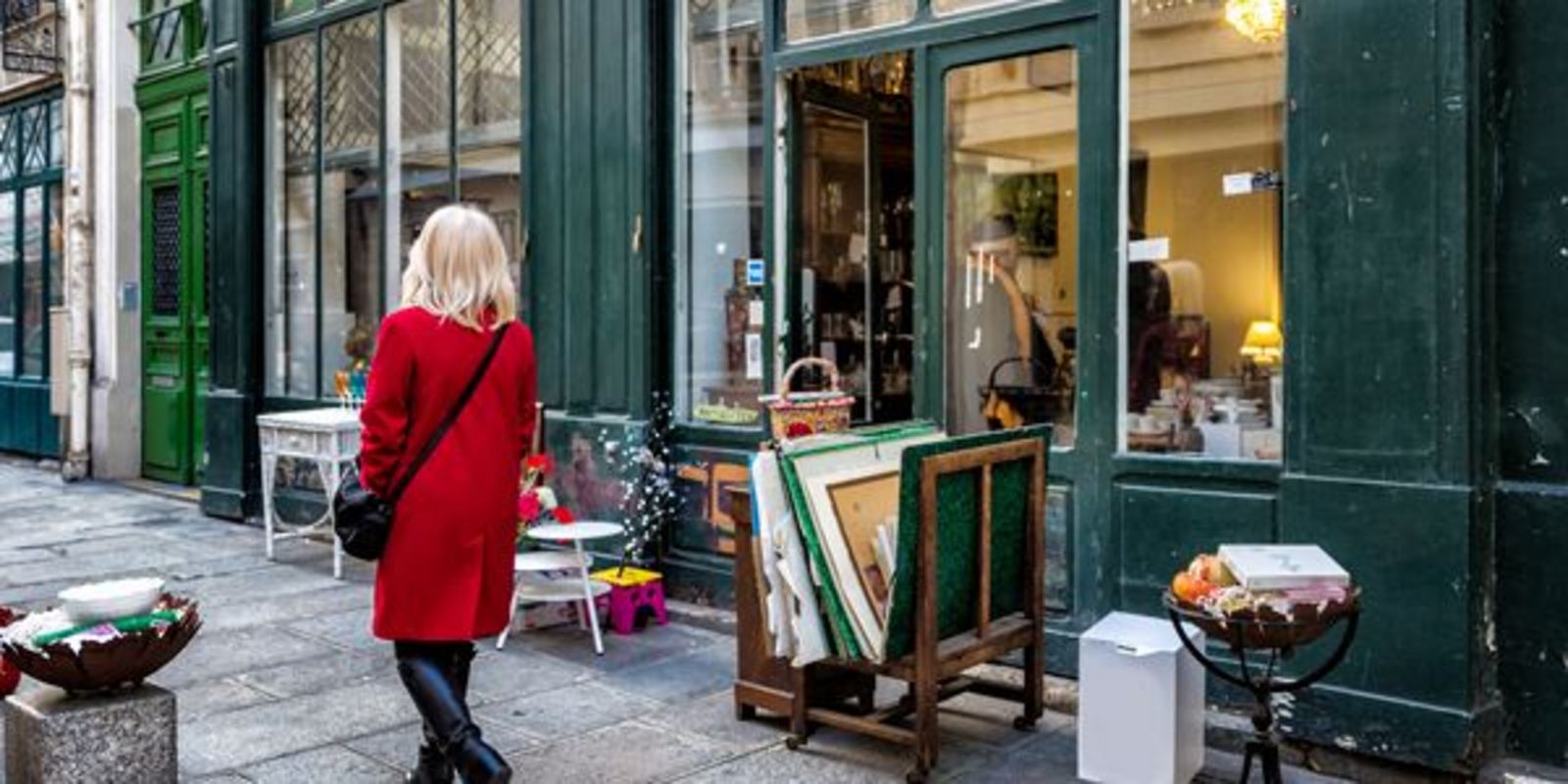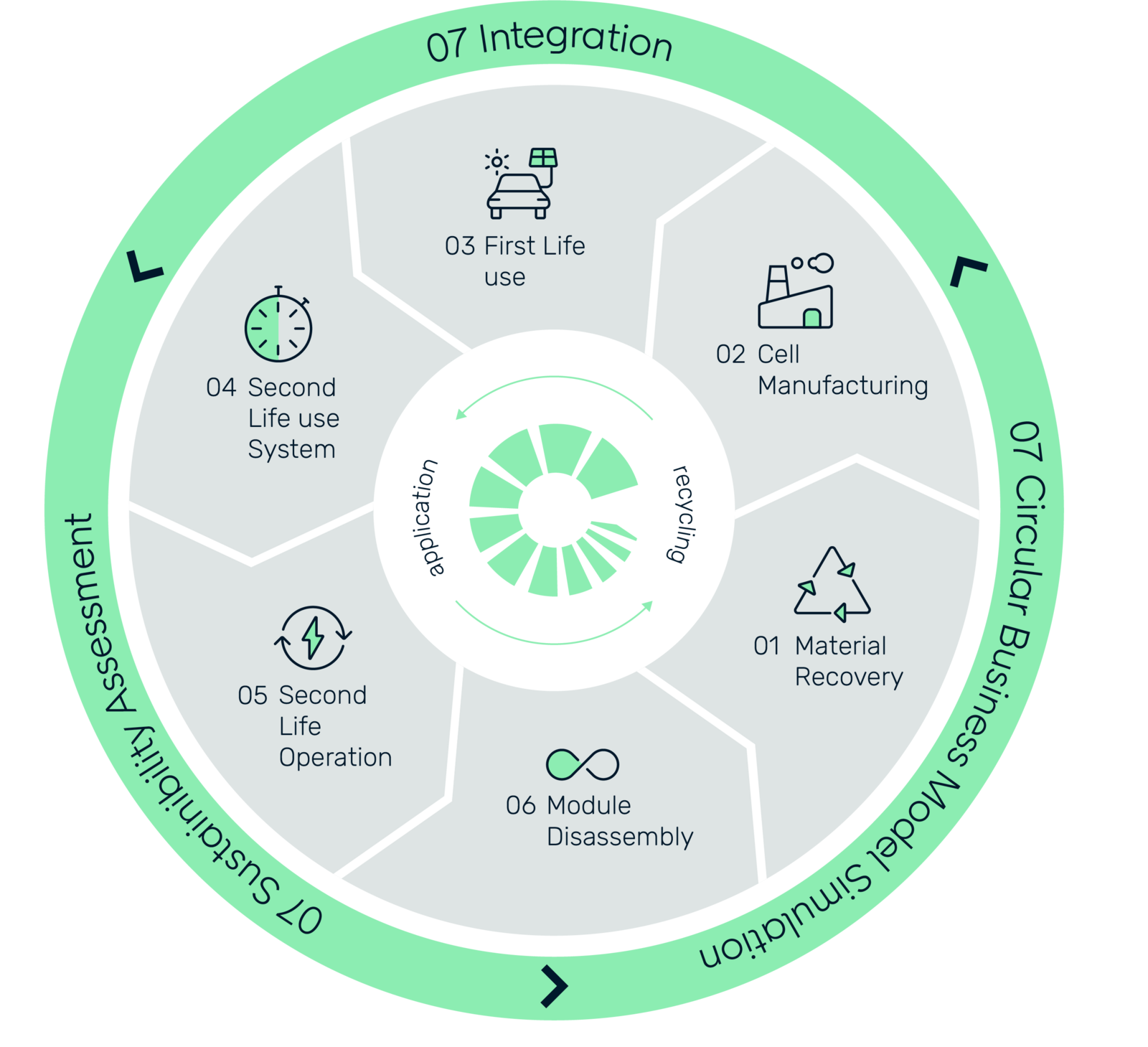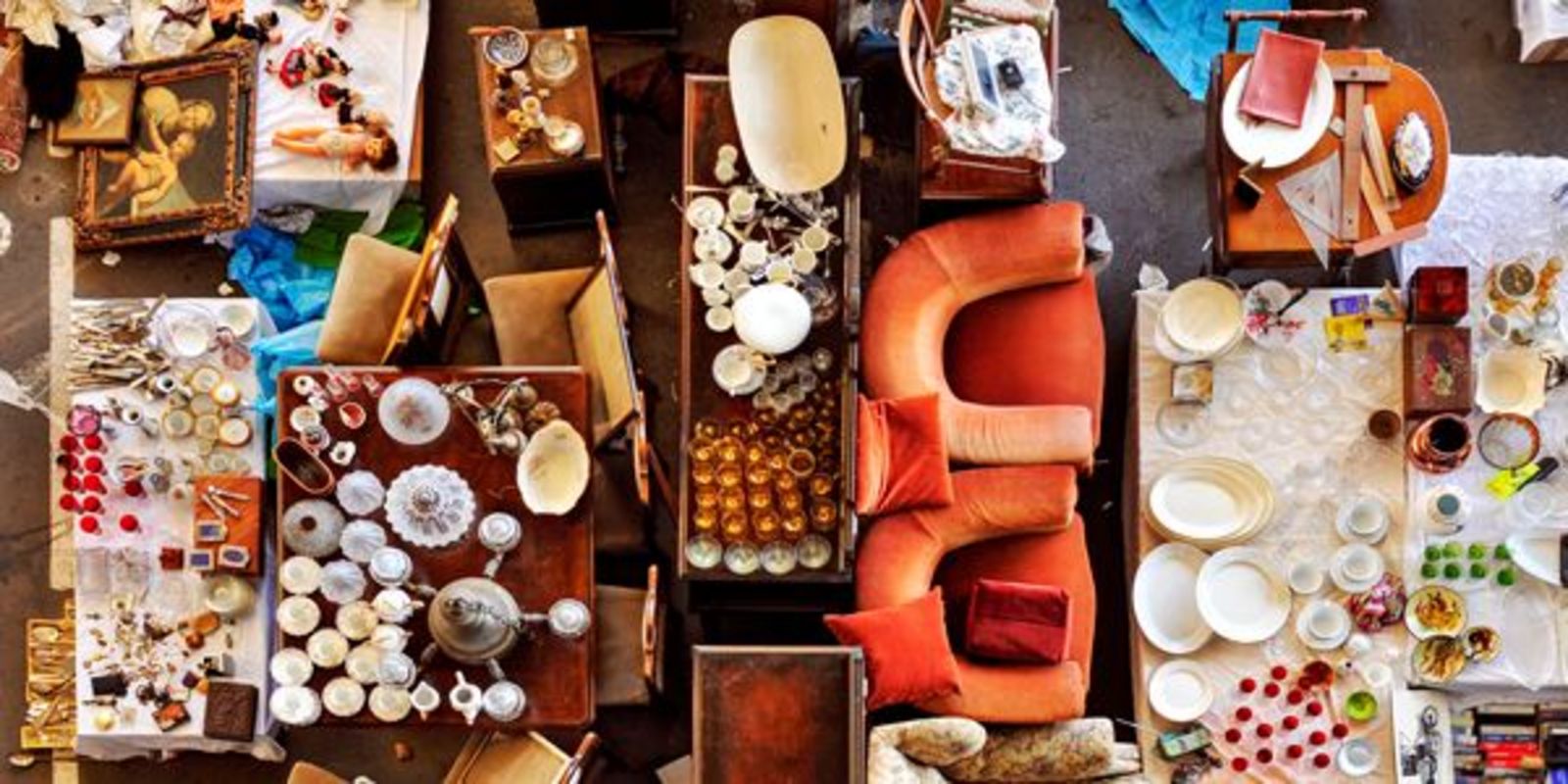Did you know that we emit 14 tonnes of CO₂ per year for the production, transport and use of new products in Switzerland – per person? Focusing more on the circular and second-hand economies would allow us to slow the consumption of resources, reduce emissions for transport and create less waste – and save money to boot. Here are some ideas for you to think about.
Mobility visited the flea market on Zurich’s Bürkliplatz.
Environmental awareness is all the rage: Kleiderberg’s fashion marketplace, online
Reduce waste, create style – that’s the motto of kleiderberg.ch. This platform lets you browse through an assortment ranging from fast fashion to designer brands. You can also create an account allowing you to recycle your good condition second-hand clothes: women’s, men’s, teens’ and children’s garments, but also bags, shoes and accessories. And if you don’t want to handle selling your items yourself, you can find a local “pick-up shopper” to do it for you.
There are lots of online second-hand marketplaces. However, Kleiderberg aims to tackle waste in a stylish and sustainable way. They’ll send you compostable bags that you can ship your clothes in. Articles containing real fur or reptile skin are not accepted. What’s the motivation behind it? “The fashion industry produces over 92 million tonnes of waste a year and uses up to 79 thousand billion litres of water. Not for nothing is it considered the second dirtiest industry, right after petroleum. We can’t carry on like this!” says co-owner Claudia Bill. Kleiderberg wants to change fashion consumption behaviour for good and raises awareness in its newsletter and on social media for issues surrounding the fashion industry – and why second-hand should become more of a first choice.

Sustainability and exercise: outdoor clothing at 2nd Peak, Zurich
Can you enjoy nature while protecting it? 2nd Peak thinks you can; it’s Switzerland's first second-hand outdoor outlet. You can hand in your high-quality outdoor clothing or equipment for resale to immediately receive a third of the set sales price. Of course, you can also donate your items.
Or just visit the shop, where you’ll also find a small assortment of new goods from the sustainable brand Ternua, as well as some unused samples or liquidation goods. You may well find your next hiking boots, camping cooker, tent or backpack there. “2nd Peak is the answer to fashion waste in the outdoor segment,” says its founder and owner Isabelle Schindler. "We want to show that the second-hand economy isn’t about dust and cobwebs, but a way of making high-quality functional outdoor gear accessible to everyone at an affordable price.” Amazing garments are added to the online shop almost daily. By the way, 2nd Peak also lets you hire equipment and a range of garments – or you can take advantage of alteration services.
www.2ndpeak.ch | Freischützgasse 10, 8004 Zurich
Programmed for the circular economy: hardware at 2nd Life IT Solutions, online
Need a notebook or workstation, hard drive or server, keyboard or monitor? You’ll find all that at 2nd Life IT Solutions’ online shop. The concept: large companies, banks and insurance companies often replace their devices after only two to three years – even if they’re still functional. 2nd Life IT Solutions buys this high-quality hardware, professionally reconditions it and upgrades it as required. The company says that the high quality of the components used means that the service life of the products is extended by an average of between three and five years.
“I want to contribute to reducing e-waste and environmental pollution, and to help combat the shortage of raw materials caused by IT products,” says owner Richie A. Müller. The production of a PC with a monitor consumes around 245 kg of fossil fuels and 23 kg of chemicals. All this generates some 1150 kg of CO₂, not to mention the environmental damage caused by the mining and overexploitation of rare earths. “E-waste often ends up in countries in Asia and Africa. Each device sold is an active contribution to environmental protection," says Müller. 2nd Life IT Solutions also offers services such as cleaning, repairs, installations, upgrades as well as purchase advice or new acquisitions.
Second-hand unifies: cross-border flea market between Constance and Kreuzlingen
Fancy haggling and browsing? If you’re after a hidden gem, you’ll get your money’s worth at the cross-border flea market between Kreuzlingen and Konstanz: for 24 hours, you can browse the assortment of around 1,000 stalls stretching 9 kilometres and across a national border. You’ll also find a number of themed markets: model railway and record collectors will find specialist areas here, as will creative and handicraft enthusiasts. Contributing to the unique atmosphere are street musicians and cabaret artists, all kinds of food and the day-and-night experience. “Events like this show that sustainability can also be entertaining,” says Isabelle Klauser from Marketing und Tourismus Konstanz GmbH. Localism and the circular economy also feature in the implementation of the event: “Only reusable tableware is allowed at the flea market. That’s why we collect local residents’ unwanted crockery and cutlery all year round and operate a mobile dishwashing facility at the event.” The next flea market is on 17/18 June 2023.

Mobility: a long life for car batteries
Electric vehicles promise mobility that’s more environmentally friendly: they have no tailpipe emissions and generally improve the CO₂ footprint of road traffic. But they also have an Achilles’ heel, in that the manufacture of their lithium-ion batteries produces a lot of CO₂, and the current generation of batteries needs replacing after eight to ten years.
This is where funding agency Innosuisse’s research project CircuBAT comes in: it reckons a sustainable, circular business model for e-vehicles’ lithium-ion batteries should be in place within four years. The project aims to extend their service life, expand their reuse possibilities and identify optimal ways of recycling them. As a participant, Mobility is looking for ways to optimise the battery’s service life: “Our goal is to identify the residual life of the batteries more precisely in order to know when’s best to remove the cars from our fleet," says Marco Piffaretti, electric mobility expert at Mobility. The study will take time: “Testing batteries is a long drawn-out process, because we have to collate the measurement results of all the charging and discharging cycles.” We remain curious!
www.circubat.ch


Join in Secondhand Day on 24 September 2022
As things stand, only 2% of goods traded in Switzerland are second-hand. The national Secondhand Day wants to change that – after all, sustainable consumption is not only trendy and easy, it also makes a difference. Each Secondhand Day is accompanied by measurements showing how much CO₂ is saved on that one day by buying second-hand. Launched by online marketplace Ricardo, the Circular Economy Switzerland network, the organisation myclimate and the free newspaper 20 Minuten, the third edition is taking place on Saturday, 24 September 2022. Visit www.secondhandday.ch to find out which shops, flea markets and exchange outlets are offering a special promotion or event for Secondhand Day.


Your comment